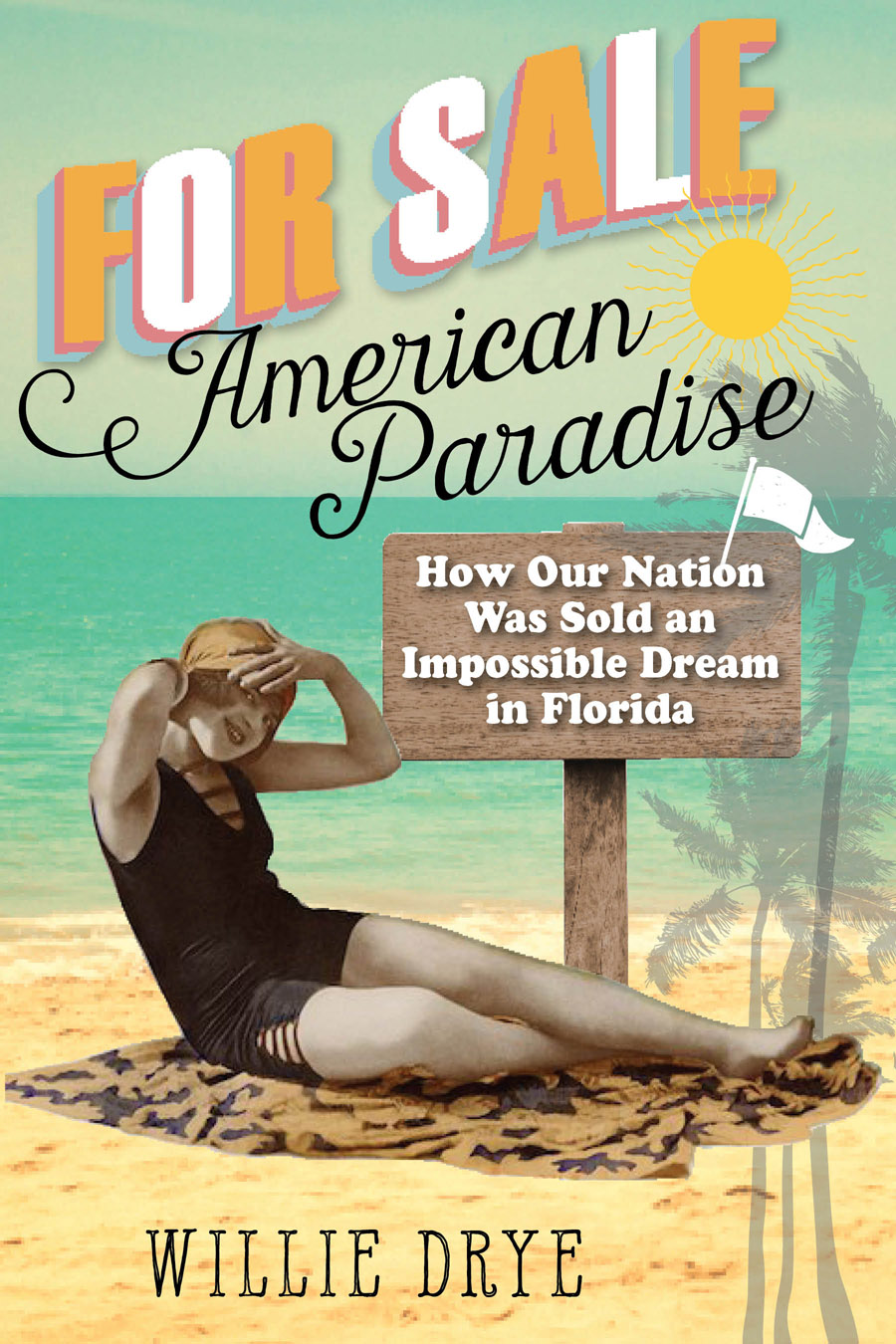
For Sale —American Paradise
How Our Nation Was Sold an Impossible Dream in Florida
کتاب های مرتبط
- اطلاعات
- نقد و بررسی
- دیدگاه کاربران
نقد و بررسی

September 14, 2015
Drye (Storm of the Century) weaves stories of economic development, railroad construction, and outlaw behavior into this tale of Florida's early boom years and the ensuing hurricane-triggered bust. On paper, Florida didn't look like the most inviting of locales when it became a state in 1845. Hurricanes, roaring heat, alligators, and the impenetrable Everglades were enough to keep most folks away. In 1867, Harriet Beecher Stowe built a winter home near Jacksonville and began to sing Florida's praises with rhapsodic descriptions of the state's natural beauty, setting in motion a series of dispatches by Ulysses S. Grant, William Jennings Bryan, Warren G. Harding, and others encouraging northerners to consider the state as a vacation or respite destinationâMiami in particular. A period of rapid growth followed, with roads and railroads connecting Miami to the Florida Keys as well as one carved through the formidable Everglades connecting Fort Myers to Miami, further enabling economic development. A lax attitude toward Prohibition didn't hurt. Drye has clearly done his research. . His narrative can be jarring, with few segues between threads, but Floridians, snowbirds, and historians are sure to appreciate the story behind one of America's most famous vacation spots.

October 1, 2015
National Geographic News contributing editor Drye (Storm of the Century) paints 1920s South Florida as a phantasmagoria--a commodified fantasy peddled by an elite so as to exploit the masses. As William Jennings Bryan and other public figures boosted Florida for its warm climate and leisurely lifestyle, real estate speculators sold off undeveloped swampland to gullible northerners for wildly inflated prices. In time the market crashed because, in the words of one speculator, "we just ran out of suckers." Hurricanes also disrupted this metanarrative of paradise, devastating Miami in 1926 and inundating the Lake Okeechobee region in 1928. But state and business leaders downplayed the impact as "negligible," lest reports of thousands of corpses floating in the sugarcane fields scare off tourists. Meanwhile, Florida crime shifted from charismatic bootleggers and bandits such as John Ashley, who robbed banks and then fled to hideouts deep in the Everglades, to organized crime--Chicago mobster Al Capone wintered in Miami. Drye expertly weaves entertaining anecdotes and local color into his narrative, which often reads like a Carl Hiaasen novel. VERDICT This broadly appealing history book entertains and informs with its portrait of Florida as commodified fantasy, business enterprise, and disaster zone.--Michael Rodriguez, Hodges Univ. Lib., Naples, FL
Copyright 2015 Library Journal, LLC Used with permission.

September 1, 2015
In the early years of the twentieth century, it took the efforts of some very determined peopleincluding William Jennings Bryan and Henry Flagler, cofounder of Standard Oilto draw the country's attention to the state of Florida, which, so the claims went, represented a huge opportunity for real-estate investors. In addition to developers, the relatively untamed state also attracted the attention of the criminal element: religious leader and Hollow Earth proponent Cyrus Teed; outlaw, bank robber, murderer, and pop-culture hero John Ashley; and, of course, furniture salesman Al Brown, who's probably better known by his real surname, Capone. This lively, fascinating look at Florida's early years profiles all these figures and describes not only the early growth but also the bursting of the bubble in the late 1920s, the result of a declining economy, the increasing profile of the crooks, and a hurricane that destroyed entire cities. Revealing reading for anyone interested in early-twentieth-century American history, boom-and-bust stories, and tales of outlaws.(Reprinted with permission of Booklist, copyright 2015, American Library Association.)

























دیدگاه کاربران